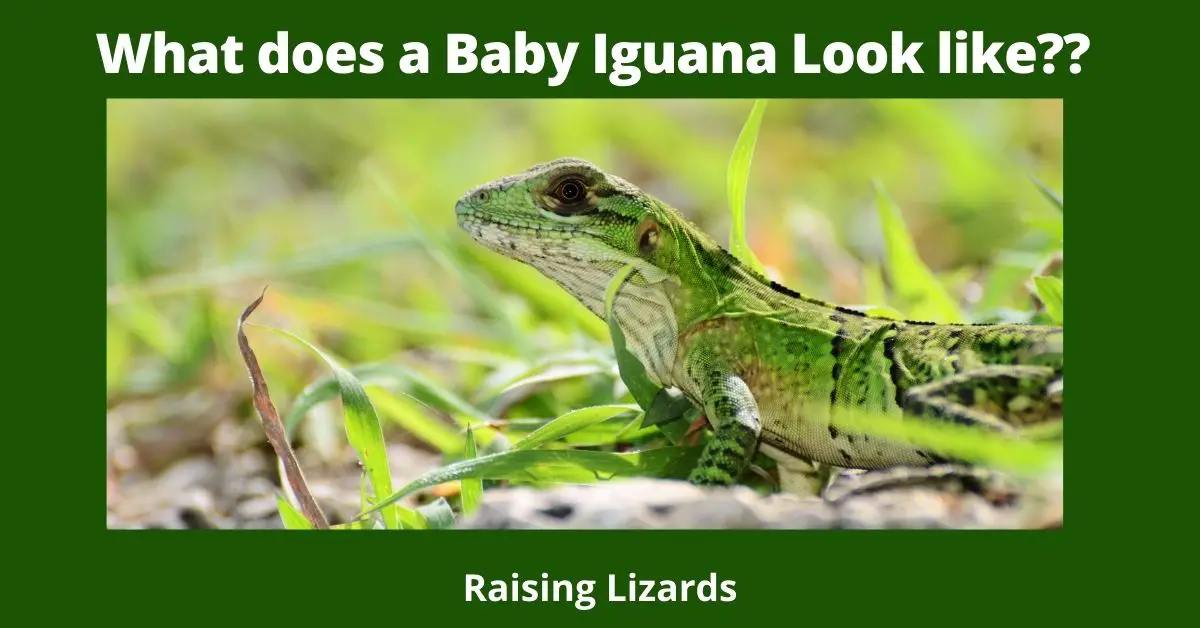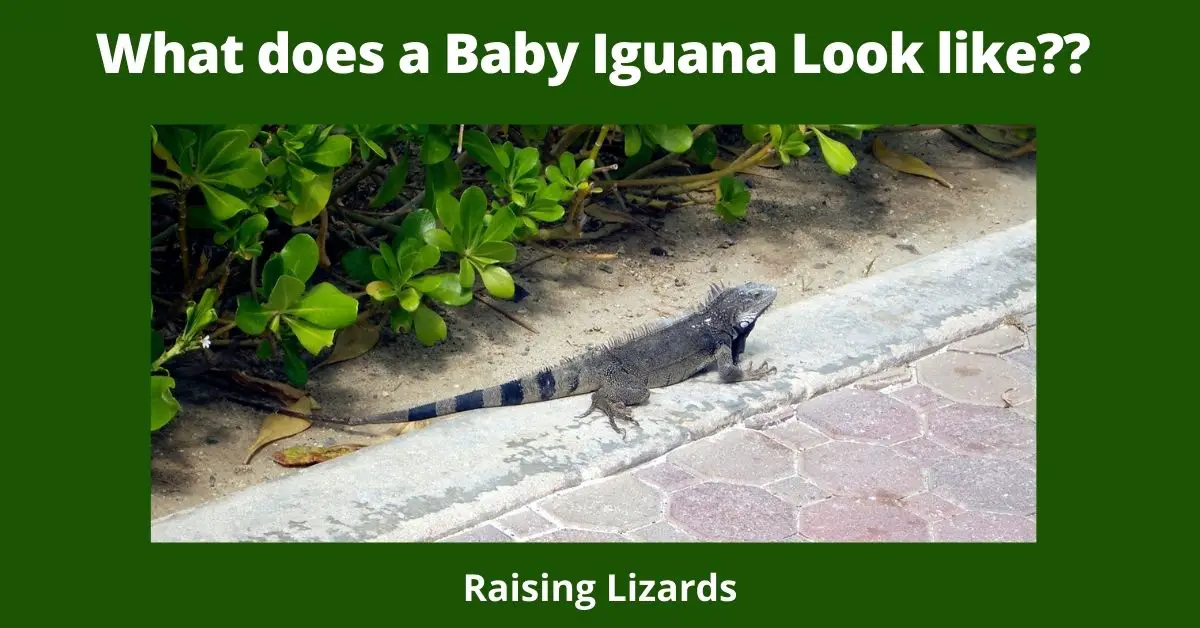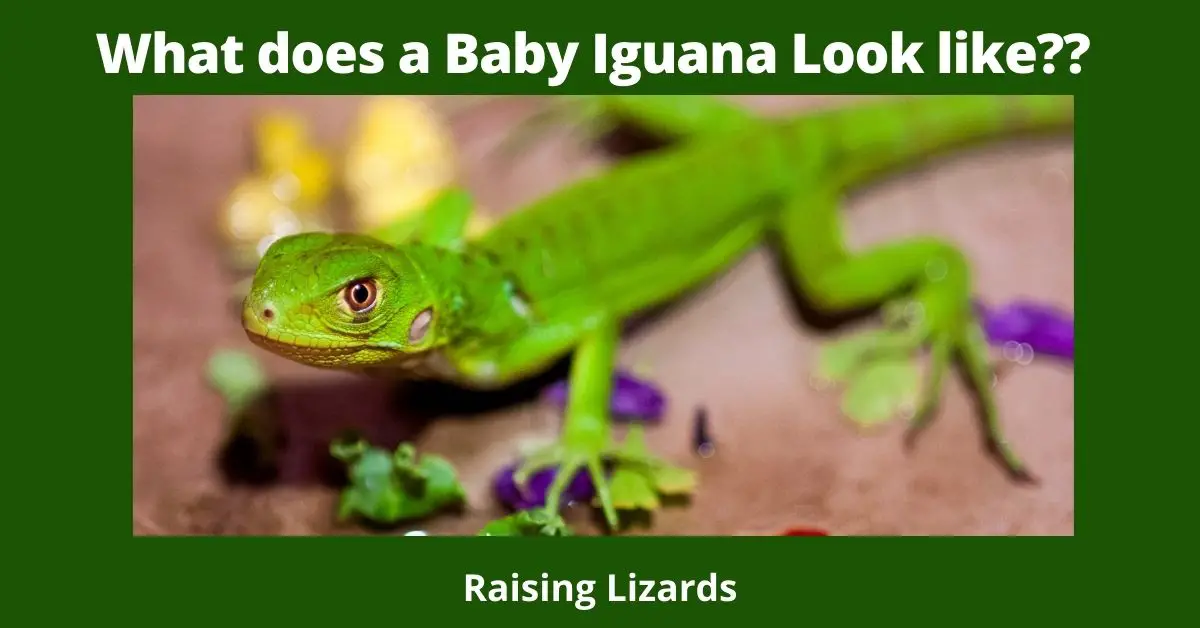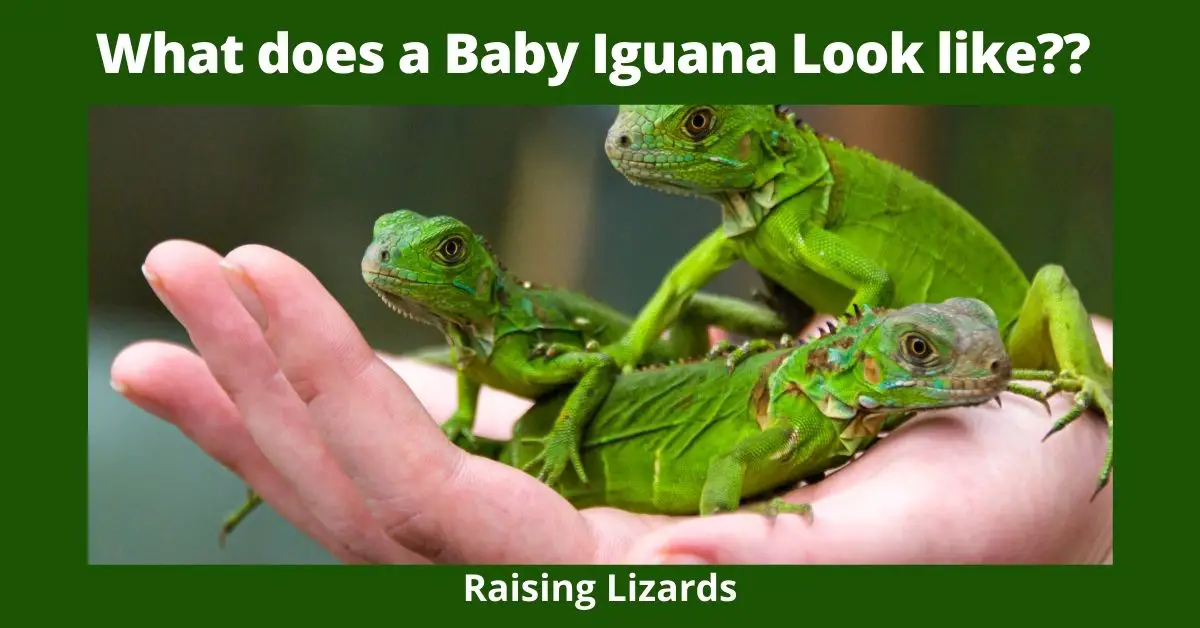Baby Iguanas Look Like small 4″ Green Lizards when they emerge from their egg after 58 Days. They are green and have long tails. They can scurry around looking for food immediately after hatching.
What does a Baby Iguana Look like?
I have wondered what a Baby Iguana Looks like? YOU
Can’t tell what kind of Lizard it is – Green and Little RIGHT
Will lay out a Baby Iguana from egg to Adult – Enjoy
Once hatched, baby iguanas look like miniature versions of their parents. They are born with green skin and black stripes down their backs. Baby iguanas need to stay in the nest for about two months after they hatch. During this time, the mother will take care of them and keep them warm. After two months, the babies are ready to leave the nest and start living on their own.
What do Iguana Eggs Look Like?
Iguana eggs come in a variety of colors. The most common color is white, but green and blue are also quite common. Some iguanas lay light-green or yellowish-colored eggs as well. Jump to 7 Reasons to Have a Pet Iguana
Most female Iguanas will lay an average of five to six times per year with each nesting producing anywhere from seven to twenty-five eggs at the same time it takes for the mother to hatch them (about two months).
All Iguanas tend to nest during warmer temperatures near eighty degrees Fahrenheit while they are incubating their offspring until they reach maturity after several weeks when all other species start laying new batches every few days; this often leads to different breeds getting mixed together inside nests if not accounted for properly by users due to some taking longer than others to hatch out eggs.

When it comes to the actual egg itself, they are very hard and look like miniature apples. They range in size from around two inches long for smaller breeds of Iguanas ranging up to four or five inches long on average if you have a larger breed that lays them at an early age (usually green Iguana’s). What does a Baby Iguana Look like?
In fact, these creatures can lay their eggs in several different ways based on how large or old they are; when young, small iguanas tend to be born with lighter colors then darken as they grow into adulthood over time just like humans do, unlike most reptiles which all develop a darker coloration once fully matured after growing older alongside growth spurts as well (a trait lost when domesticated animals are bred through genetic engineering).
Iguanas lay their eggs inside a nest, which is usually made of grass and leaves. The iguana will chew up some plants to make the bedding for her babies while also making a little den out of them so they don’t fall over.
This can be found by noticing its entrance outside that leads into the main chamber where all the egg-laying occurs; once you find it simply follow your nose towards its source since freshly laid eggs have an extremely strong smell (although not as bad as poop) due to being very fresh just like chicken or duck eggs do in most other species including humans from time to time depending on how well one takes care of themselves and what they consume (especially if they eat a lot of eggs). As time goes by, the smell will dissipate over days and weeks.
Where do Mom Iguanas hide their eggs?
When a female iguana is laying eggs, she can end up with a lot of them. So where do Mom Iguanas hide their eggs?
Some iguanas live on land and lay their eggs in holes that they dig into the ground. These holes are usually found under objects such as rocks or fallen trees. The female lays her eggs deep inside this hole to keep it safe from predators like hawks and cats. She also stays near the egg-laying site after laying all her eggs so that if any animal tries to steal one, she will find out quickly enough and attack it!
Other iguanas live in water instead of land – these iguanas have long tails so they can swim fast beneath the surface while watching for danger above the surface!
When an iguana is laying her eggs, she swims to a place that has underwater holes in it. She lays the eggs inside these holes and then covers them up with sand so they are safe from predators!
Sometimes iguanas lay their eggs on tree branches instead of underground or underwater. These iguanas have long tails like those who live in water, but since they live on land, there isn’t as much danger for an animal to come to steal one of their babies!
How Long does it Take for an Iguana Egg to Hatch?
The average time it takes for an iguana egg to hatch is around 58 days. However, this can vary depending on the temperature and humidity of the incubation area. Iguana eggs should be kept at a temperature of 86-88 degrees Fahrenheit and a humidity level of 50-60%.
If the conditions are not optimal, it can take longer for the eggs to hatch. It is important to keep a close eye on the eggs during incubation, as any changes in temperature or humidity can impact hatching success.
If you are looking to incubate iguana eggs at home, there are a few things you need to know first. In order to create the right environment for hatching, you will need an incubator that can maintain a temperature of 86-88 degrees Fahrenheit and a humidity level of 50-60%.
You can buy an incubator or build your own. If you choose to build your own, be sure to use a thermometer and hygrometer to monitor the conditions in the incubator.
If you are not comfortable incubating eggs at home, there are several professional breeders who will do it for you. Just be sure to ask about the hatching success rate before you make a purchase.
Incubation is a delicate process, and not all eggs will hatch successfully. However, with proper care and attention, most iguana eggs will hatch without any problems.

What does a Baby Iguana look like?
A baby iguana is about 4″ when it is born. Baby iguanas are very cute and their skin is a light green color. They have small spikes on their back and tail, which will grow larger as they get older.
Baby iguanas eat insects and other small creatures. As they grow older, they will start to eat leaves and other plants.
Iguana eggs take about two months to hatch, so you won’t see any babies until late summer or early fall. If you find an egg that has hatched, the baby iguana will be about four inches long.
They immediately can scurry away to find food and only return to the nest for shade or protection. Mommy iguana can regurgitate her own body fluids for baby iguanas, which will make them stronger.
Once hatched they pretty well fend for themselves.
How Fast do Baby Iguanas Grow?
Baby Iguanas Grow quite rapidly: At
- 1 Month – Up to 12″. At
- 12 Months- Up to 24″ – 30″ in length.
- At 18 months – up to 36″. This growth rate can be due mainly because of their high metabolism and need for food. In the wild, baby Iguanas eat a variety of insects (including bugs) such as grasshoppers and crickets, but also leaves and flowers!
- 24 Months – up to 42″ – 48″.
How Big do Baby Iguanas Get?
An Adult Iguana can grow as long as six feet, but baby iguanas are much smaller. Baby Iguanas can start growing around two inches and will continue to grow until they’re about four or five years old.
Iguana hatchlings weigh between 12 and 20 grams at birth, and their skin is black with some white markings. The pattern of these markings helps camouflage the young iguana against potential predators.
Hatchlings eat small insects for their first few meals, then graduate to a diet of leaves and other plant matter.
As they get older, baby iguanas will become more independent from their parents and may even move away from home. Female iguanas typically stay closer to home than males, who tend to range further afield in search of food and mates.
When can Baby Iguanas Mate?
Iguanas are old enough to mate when they are about two years old.
What do Baby Iguanas eat? Baby
Iguanas eat insects, worms, and some fruits. They do not have teeth but they have a beak-like an adult iguana does.
Their favorite food is crickets and other bugs that can fit in their mouth or are small enough to swallow whole.
Plants, Leaves, and Flowers are their second favorite thing to eat. They also love fruits like bananas, kiwi, and strawberries but you must make sure that the fruit is safe for them because some plants are poisonous to Baby Iguanas.
Baby Iguanas need water frequently so always have a bowl of fresh clean water available at all times with no chlorine or fluoride added! In the wild they will get their water from dew on leaves in the morning sun which helps keep your iguana hydrated as well.
(Most people do not realize how important it is to wash one’s hands before handling an Iguana!)
How Long do Baby Iguanas Live?
Iguanas are one of the most popular types of pet reptiles and for good reason. They’re especially attractive to children and often highly intelligent, making them fun companions. While it can be hard to imagine letting your little “tail-wagger” go at some point in the future, you should know that iguanas have a fairly long lifespan too!
If you want more information on how long do baby Iguanas live then read below: The lifespan of male green iguanas is about 20+ years.
Female Iguanas usually live a few years shorter than males because of egg-laying and reproduction.
Baby iguanas, or hatchlings, usually don’t reach sexual maturity until they are two to three years old
Iguanas can live up to 25-30 years in captivity given the right food, care, and environment.

Where can you find a Baby Iguana for sale?
- Reptile Pet Store
- Online Pet Stores
- Iguana Breeders
- Facebook Market Place
- Craigslist
You can Look to Buy
- Eggs to Hatch
- Baby Iguanas
- Adolescents
- Also maybe look up a reptile Rescue and adopt one
Final Thoughts – What does a Baby Iguana Look like?
In Summary
Baby Iguanas can be found in many places. You can adopt them from a rescue or buy an egg to hatch, but most people find baby iguanas for sale online with reptile pet stores like Petco and Reptiles by Mack!
In this article we got more information about Baby Green Iguanas such as where they live, what they eat, how long do Baby Iguanas live and where can you Find a baby iguana for sale?


